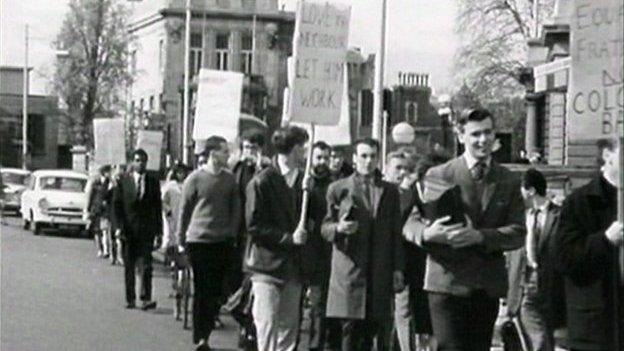Edward Colston: Bristol slave trader statue 'was an affront'
- Published
Protesters in Bristol pull down a statue of slave trader Edward Colston
A statue of a slave trader which was torn down during an anti-racism protest in Bristol was "an affront", the city's mayor has said.
Mayor Marvin Rees said he felt no "sense of loss" after the controversial bronze statue of Edward Colston was pulled down and thrown into the harbour by protesters on Sunday.
But Prime Minister Boris Johnson described it as a "criminal act".
Avon and Somerset Police said a decision was taken not to intervene.
Mr Johnson's official spokesman said: "The PM's view is that in this country, where there is strong opinion, there is a democratic process which should be followed.
"People can campaign for the removal of a statue but what happened yesterday was a criminal act and when the criminal law is broken that is unacceptable and the police will want to hold to account those responsible.
"The PM absolutely understands the strength of feeling, but in this country we settle our differences democratically and if people wanted the removal of the statue there are democratic routes which can be followed."
Bristol mayor: Patel's comments show 'absolute lack of understanding'
Thousands of people attended largely peaceful demonstrations in cities across the UK at the weekend, including in Manchester, Wolverhampton, Nottingham, Glasgow and Edinburgh.
But unrest in London on Sunday resulted in eight police officers being injured and 12 arrests.
The statue of the prominent 17th Century slave trader has been a source of controversy in Bristol for years.
Ten thousand people descended on the city on Sunday for the protest which saw the Colston statue torn down and dragged through the streets to the harbour, where it was thrown into the water.
Colston was a member of the Royal African Company, which transported about 80,000 men, women and children from Africa to the Americas.
On his death in 1721, he bequeathed his wealth to charities and his legacy can still be seen on Bristol's streets, memorials and buildings.
After the statue was toppled, a protester was pictured with his knee on the figure's neck - reminiscent of the video showing George Floyd, the black man who died while being restrained by a white Minnesota police officer.
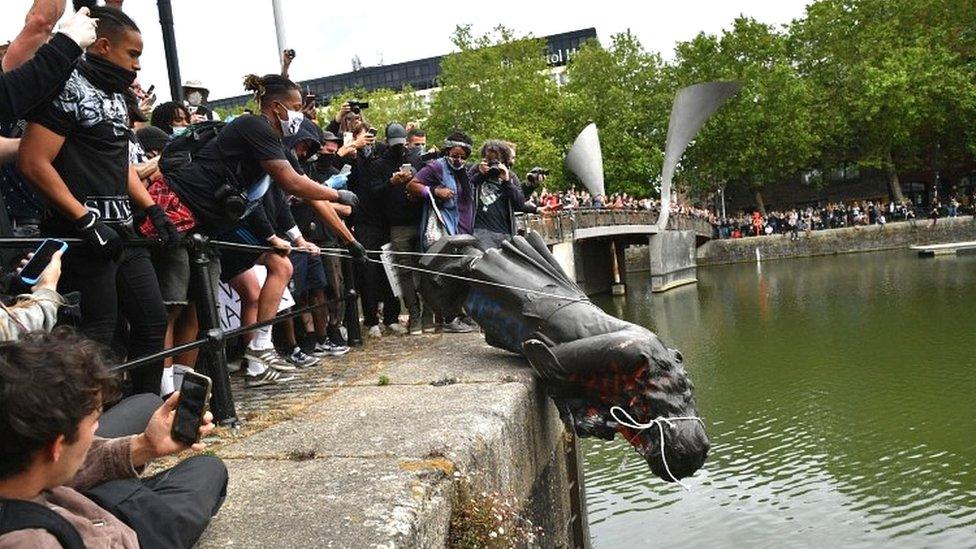
The statue of Edward Colston was dragged through Bristol before being thrown into the harbour
Home Secretary Priti Patel said the incident was "utterly disgraceful" and "it's not for mobs to tear down statues".
Mr Rees said those comments showed an "absolute lack of understanding".
He added the statue would be retrieved from the harbour "at some point" and it was likely to end up in a city museum.
"I think circumstances came to a head and people felt the need to take the statue down," Mr Rees said.
"I can't and won't pretend the statue of a slave trader in a city I was born and grew up in wasn't an affront to me and people like me.
"People in Bristol who don't want that statue in the middle of the city came together and it is my job to unite, hear those voices and hold those truths together for people for who that statue is a personal affront.
"As an elected politician, obviously I cannot condone the damage and I am very concerned about the implications of a mass gathering on the possibility of a second Covid wave."

'Why the statue had to come down'

Salma Omar said she would tell her children about the day Edward Colston's statue fell
Protesters in Bristol on Sunday described seeing Colston's statue being toppled as "empowering".
Some of those who saw it fall told the BBC why they felt it was right it was pulled down.

Police said a "tactical decision" was taken by officers at the protest not to intervene as people pulled the statue down.
Supt Andy Bennett said although he was "disappointed, he did understand" as the statue had caused "a lot of angst" for the city's black community.
The Police Federation, which represents rank-and-file officers in England and Wales, has criticised the decision not to intervene, saying it sent a negative message.
Supt Bennett said police had identified 17 suspects over the criminal damage to the Colston statue and that investigations continued.
Mr Rees described the protest as a "well-managed occasion by police and council officers".
"There was a very large number of people but very few arrests. Only one piece of criminal damage and that was at the statue, people didn't go around smashing shop fronts or verbal confrontations," he said.
But leader of the Conservative group on Bristol City Council, Mark Weston, said the "perpetrators should be prosecuted for a wanton act of criminal damage".
"I do not believe that anyone has the right to deface or destroy public property, no matter how warranted they believe their actions or motivation to be," he said.
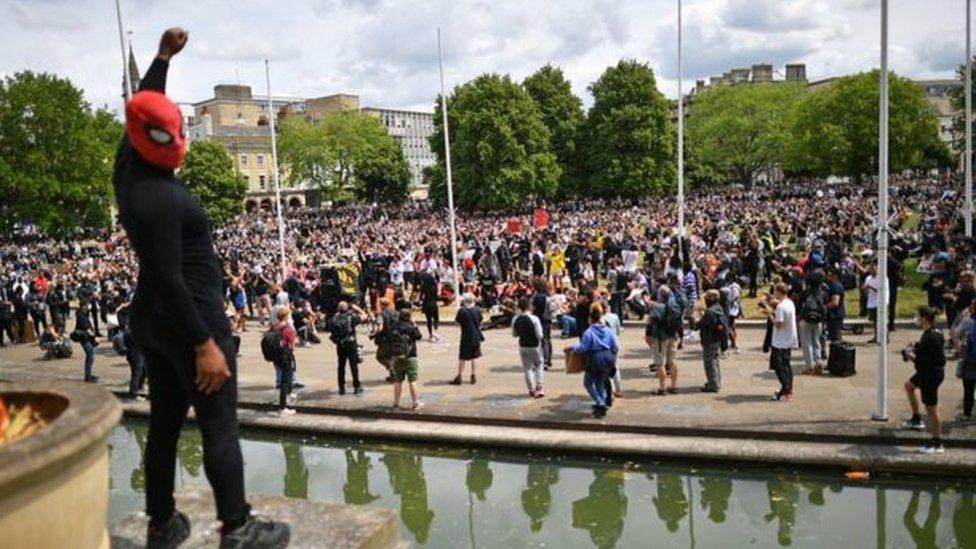
Ten thousand people are estimated to have take part in the Bristol protest on Sunday
A petition has been set up at change.org for a statue of civil rights campaigner Dr Paul Stephenson to be erected as a replacement.
Dr Stephenson led the Bristol bus boycott in the 1960s, which resulted in a ban on ethnic minorities working on city buses being overturned.
Calls have also been made to remove the statue of imperialist Cecil Rhodes at Oriel College at Oxford, with campaigners saying the university had "failed to address its institutional racism".
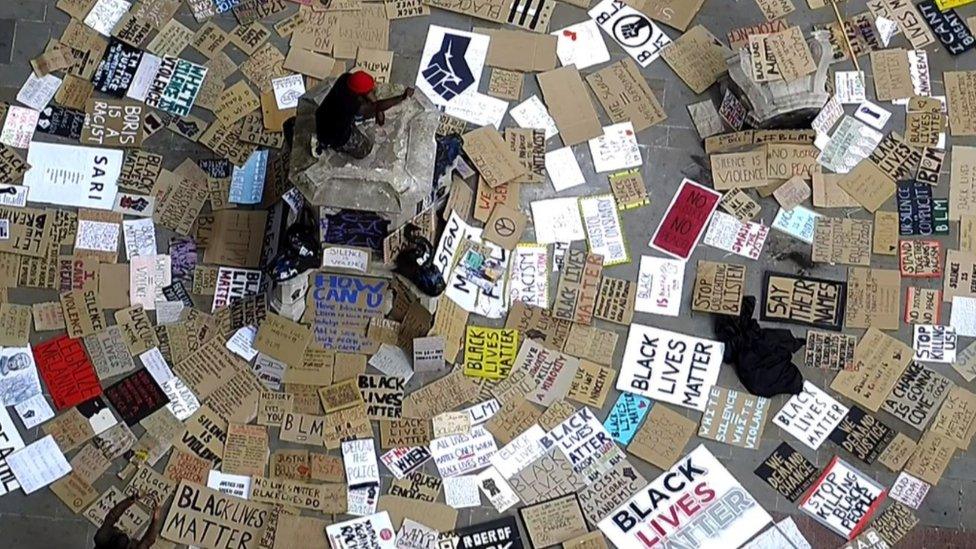
Placards left at the site where Colston's statue stood will go on display at Bristol's M Shed museum
Mr Johnson has vowed those responsible for violence during the anti-racism demonstrations in cities will be held to account, saying the protests had been "subverted by thuggery".
Labour leader Sir Keir Starmer said the way the statue had been pulled down was "completely wrong" but it should have been removed "a long, long time ago".
"You can't, in 21st Century Britain, have a slaver on a statue. That statue should have been brought down properly, with consent, and put in a museum," he said.
- Published8 June 2020
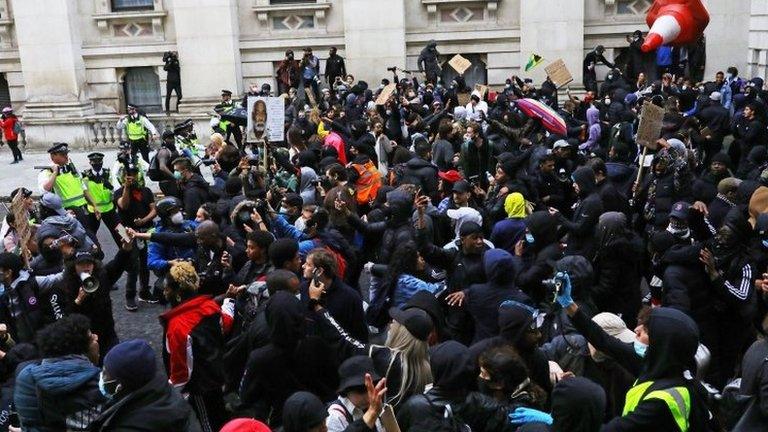
- Published8 June 2020
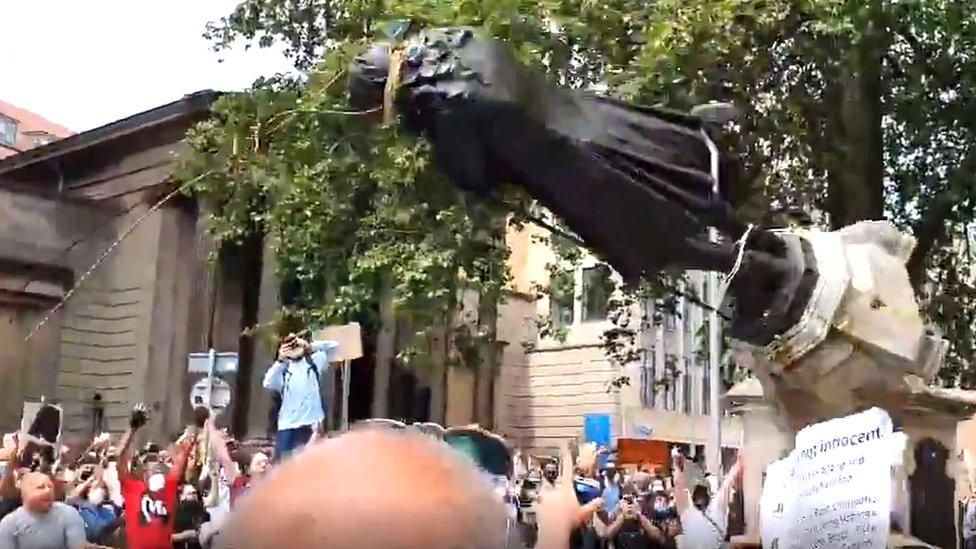
- Published8 June 2020
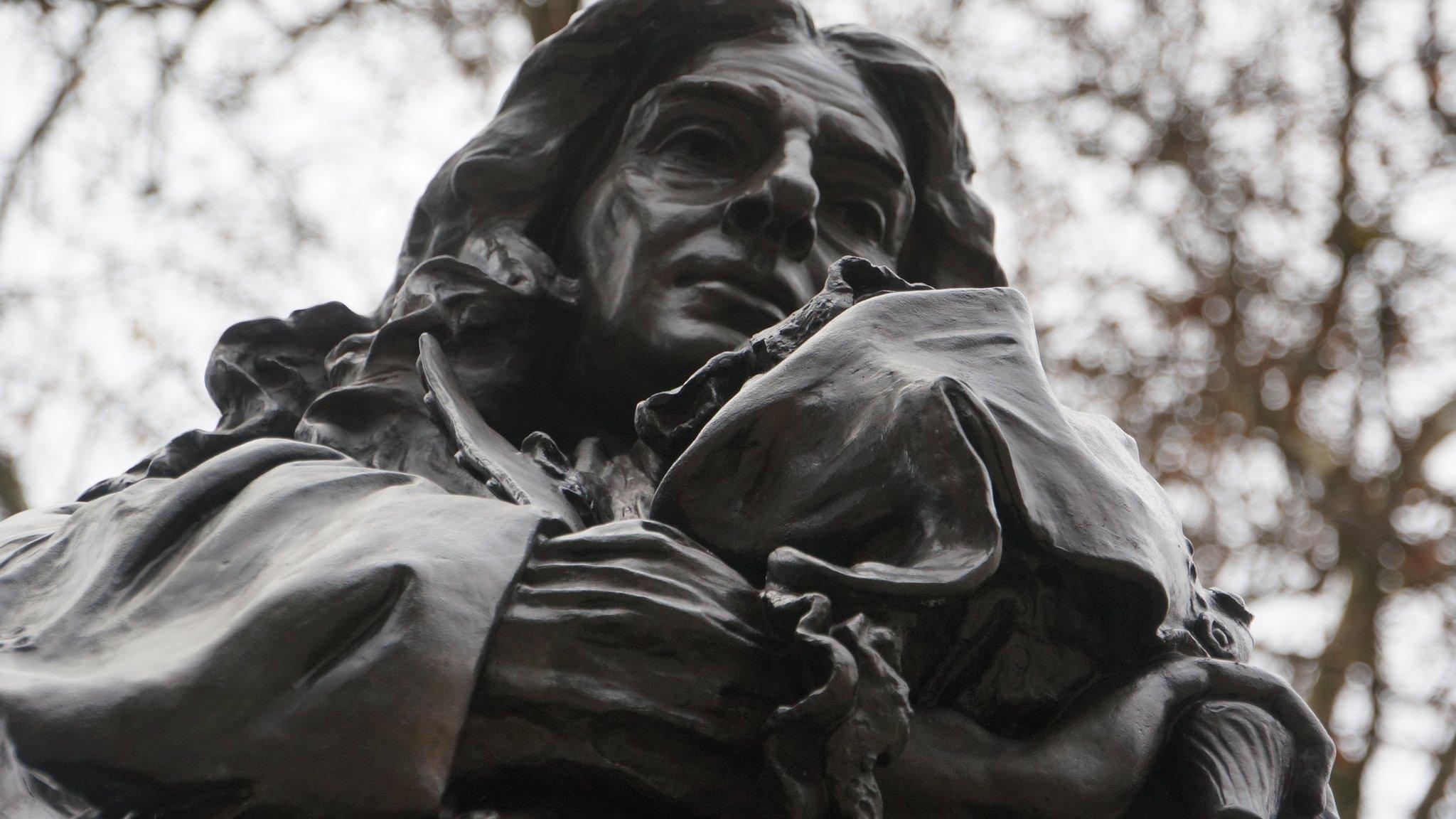
- Published7 June 2020
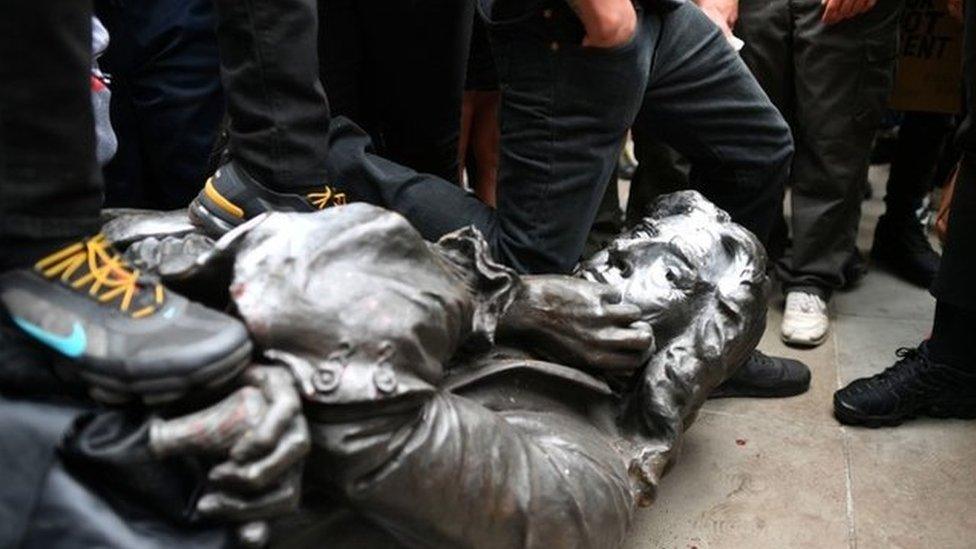
- Published7 June 2020
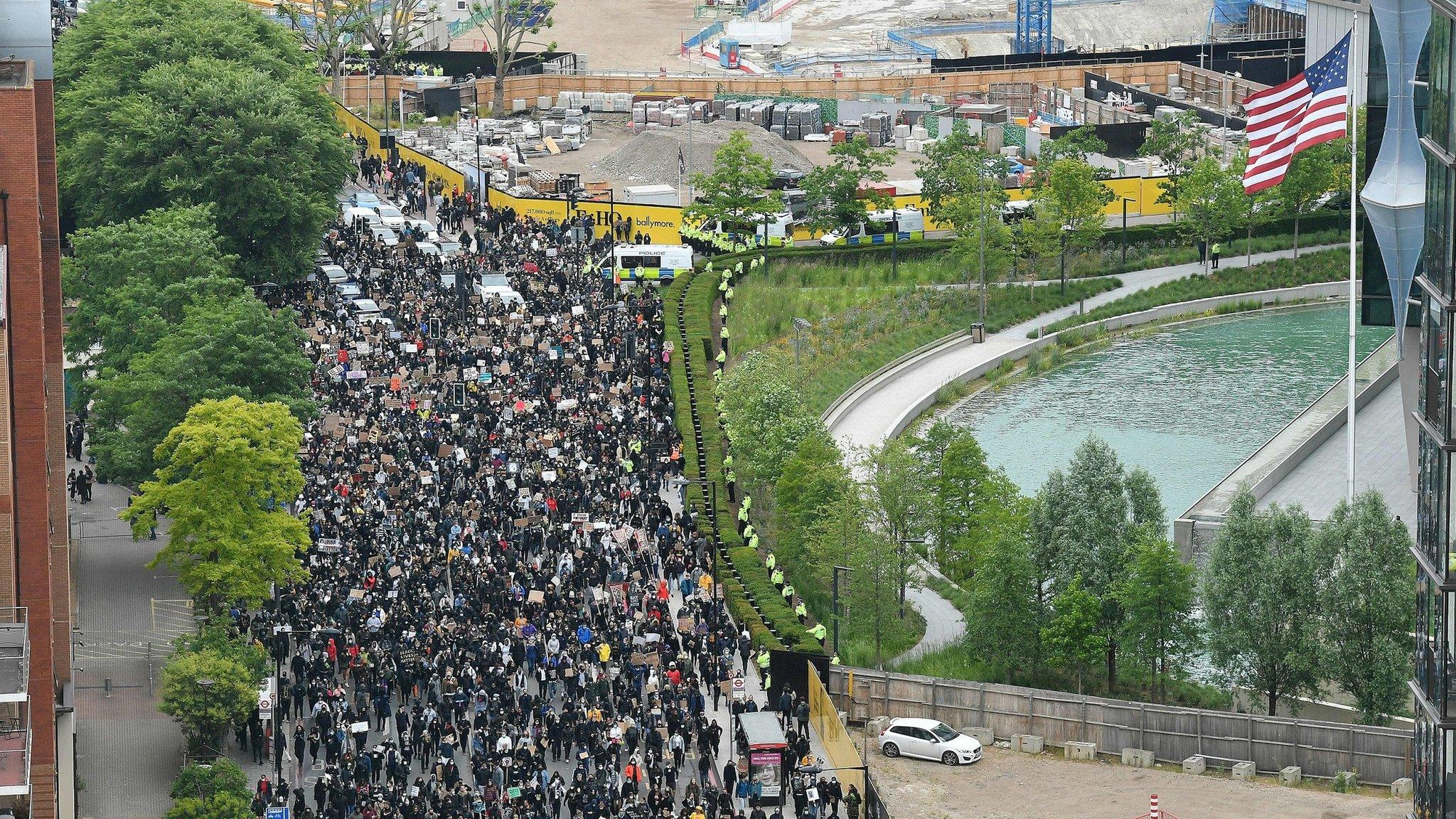
- Published8 June 2020
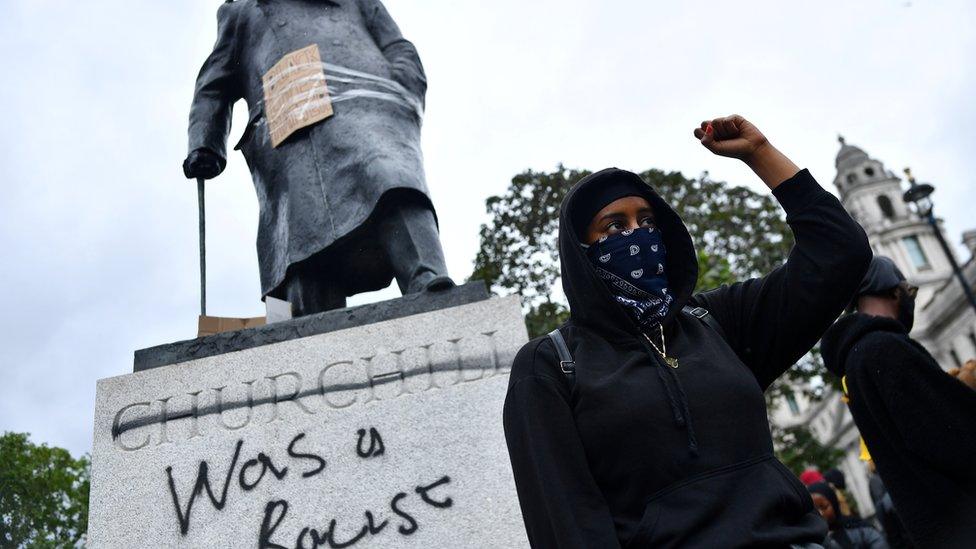
- Published3 June 2020
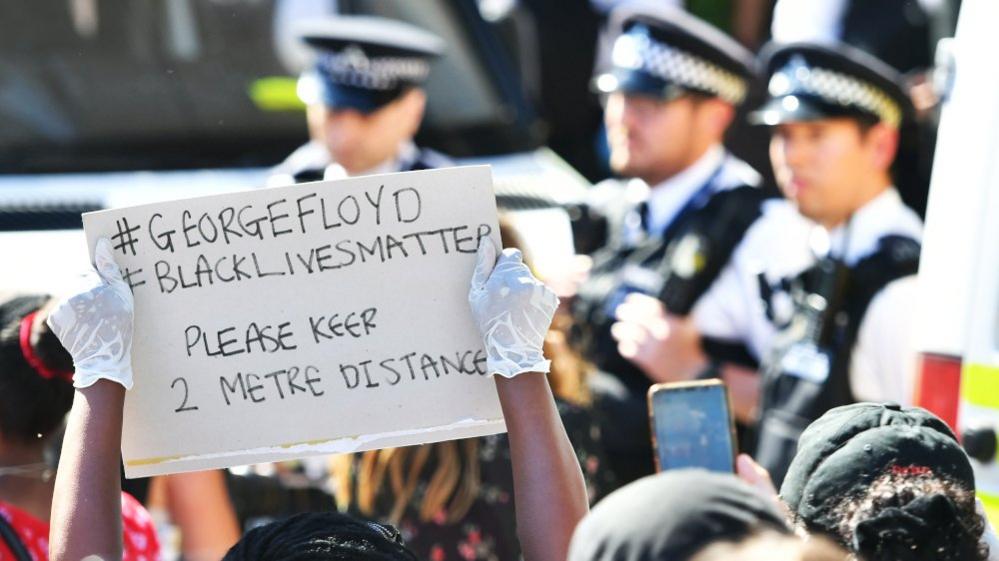
- Published27 August 2013
